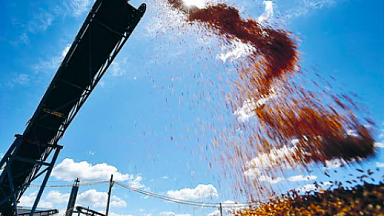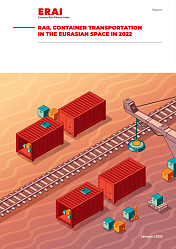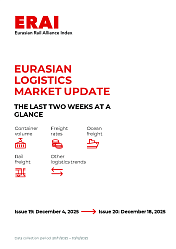The Russian cargo consists of two 40-foot containers of wood laminate sheets that departed St. Petersburg for the Caspian Sea port city of Astrakhan, the Iranian Islamic Republic News Agency reported around a week ago.
In Astrakhan, the cargo will be reloaded to cross the Caspian Sea to Iran’s Anzali Port, where they will be carried by road through Iran to the port city of Bandar Abbas. The goods will again be loaded onto ships at the Iranian port to be delivered to India’s largest container port in Navi Mumbai. The total transit time is expected to be 25 days.
Shared benefit
The shipment, carried out by the Iranian Shipping Lines Group for a Russian manufacturer, showcases the cooperation between the countries, both benefiting from an alternative north-south transport corridor. Shipping from Russian ports has been limited by European sanctions. Similarly, transport through Iran is limited by US sanctions.
The INSTC has been tried and tested by several stakeholders. The main objective of the corridor is to provide an alternative to the traditional routes carried out by sea through the Suez Canal and the Mediterranean, and the Baltic Sea. It should reduce journey times between Mumbai and Moscow from forty to fourteen days.
Although transport is already possible on the corridor, its full potential will not be reached until the main missing link is established: the Rasht-Astara railway line in Iran. Moreover, there is an ambition to make the Iranian port of Chabahar as the connecting point, as this port is geographically much closer to India. But, a railway connection from the Iranian network to this port is missing.
Cards reshuffled
Another point of discussion remains the transit from Russia to Iran. This can go either via Armenia or Azerbaijan. The decision for this is complex considering political instability in the region. This is in part hampering the completion of the Rasht-Astara railway line in Iran too, as the Iranian government wants to know whom to turn to for investments in the project. The Armenian infrastructure is already there, but the support currently comes from Azerbaijan.
The current situation has however shuffled the cards on the table. Russia has opted to avoid overland transport through both Azerbaijan and Armenia and opted for the Caspian seaport from a Russian-Iranian terminal on the Caspian Sea. Moreover, the corridor is currently not considered by companies that are not favorable to Russia, such as Finland. A year ago, a test shipment left from Helsinki, headed for Mumbai. This year, the benefit of the route is noted by Russia, with more shipments expected to come.





